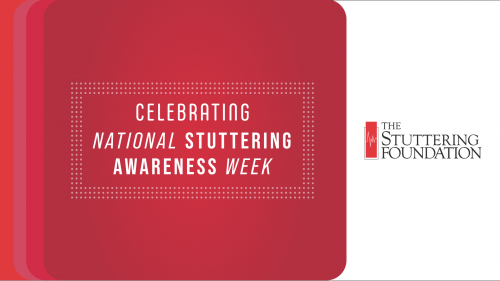
Today marks the beginning of National Stuttering Awareness Week, a weeklong spotlight on the condition affecting more than 70 million people worldwide. This year, we are focusing on fighting myths associated with the speech disorder. For as long as people have been stuttering, there have been myths surrounding the condition. We work hard to raise awareness about stuttering, to provide help to the stuttering community, and to set the record straight.
Myth: People who stutter are not smart.
Reality: There is no link whatsoever between stuttering and intelligence. The Stuttering Foundation keeps an updated list of famous people who stutter, which includes world-renown scientists Charles Darwin and Alan Turing.
Myth: Nervousness causes stuttering.
Reality: Nervousness does not cause stuttering. Nor should we assume that people who stutter are prone to be nervous, fearful, anxious, or shy. They have the same full range of personality traits as those who do not stutter. In fact, the Stuttering Foundation has created an “I Stutter Card” for travelers moving through airport security and Customs, during police stops and other interactions with authority figures.
Myth: Stuttering can be “caught” through imitation or by hearing another person stutter.
Reality: You can’t “catch” stuttering. No one knows the exact causes of stuttering, but recent research indicates that family history (genetics), neuromuscular development, and the child’s environment, including family dynamics, all play a role in the onset of stuttering.
Myth: It helps to tell a person to “take a deep breath before talking,” or “think about what you want to say first.”
Reality: This advice only makes a person more self-conscious, making the stuttering worse. More helpful responses include listening patiently and modeling slow and clear speech yourself.
Myth: Stress causes stuttering.
Reality: As mentioned above, many complex factors are involved. Stress is not the cause, but it certainly can aggravate stuttering.
For more than 70 years, the Stuttering Foundation has served as a trusted resource for the stuttering community, offering brochures, e-books, podcasts, videos, a magazine, virtual learning and multiple social media channels to spread timely and accurate information about stuttering.
Posted May 10, 2021





 Podcast
Podcast Sign Up
Sign Up Virtual Learning
Virtual Learning Online CEUs
Online CEUs Streaming Video Library
Streaming Video Library